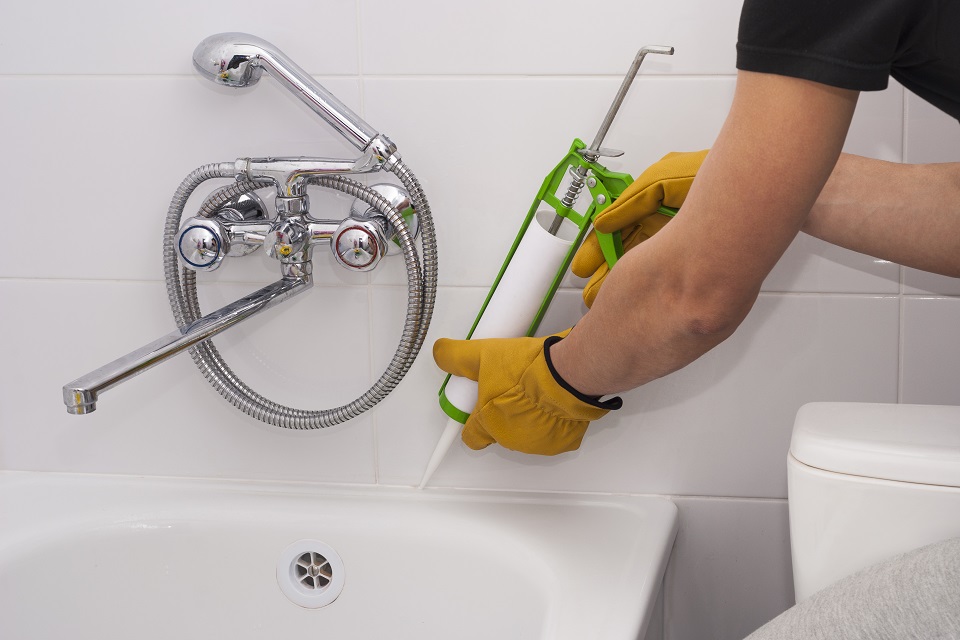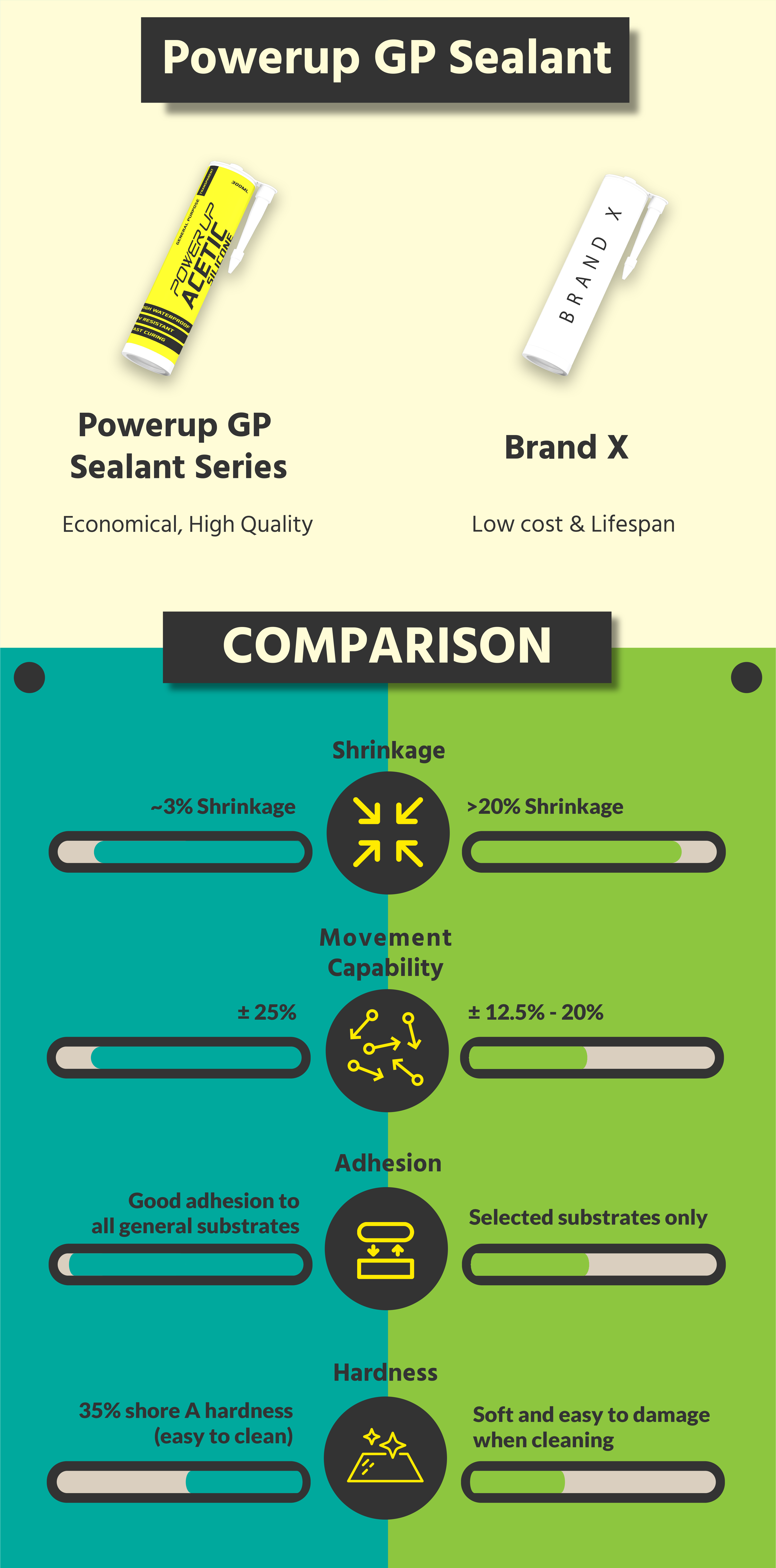Silicone sealant may be hard to choose as a typical consumer can be overwhelmed by the range of selections. In this article, we explain the basics of choosing the right silicone sealant for your use case. By the end of the article, you should be able to select the right sealant for your application.
Silicone sealant is quite a broad term that is used a lot especially when it comes to DIY jobs, the first thought for most people is to go to their local DIY store and grab the cheapest one in the right colour. Sealants might differ in flexibility, durability and resistance to weathering & UV light. Let's dive deeper.
Choosing the right type of silicone sealant is largely related to what type of job area it is used for. Once this is understood, choosing the right one is pretty straightforward.
Common uses for silicone sealants:
-
Sealing gaps around baths, showers, windows, worktops
-
Fixing mirrors or glass to tiled surfaces
-
Sealing gutters and downpipes
-
Gluing aquariums together
-
Other general industrial use and waterproof sealing.
Silicone sealants are used in a wide variety of building applications because of their strong performance characteristics, these include:
-
UV resistance
-
Temperature resistance
-
Highest movement capability (Class 12–100)
-
Generally longer service life
-
Continued flexibility over time
Silicone sealants can produce strong vinegar like odour and take time to fully cure, but it is still used for all of the glass assemblies in the world, which is still growing at recent years. Why is this? This is because it is flexible at wide temperature ranges, are completely waterproof, bond well to most surfaces, especially silica, which is a primary constituent of glass. However, one has to note that pure silicone sealants are not paintable.
Silicone types in common use in the industry include:
-
High Modulus
-
Low modulus
-
Neutral cure
-
Acetoxy cure
The difference of high and low modulus can be explained simply: a low modulus will need a lower force to stretch it once cured and will have better elasticity and movement capability; a high modulus is more rigid once cured. In deciding which modulus is best for a given application, then desired movement characteristics are the main thing to take into consideration. For more information about choosing the right sealant, you can contact Powerup for technical support, we are available 24/7.
For example, if you are sealing around a bath, you would use a high modulus silicone. The reason for this is that as you fill the bath with water, the increased weight will lower the structure, this will put a force on the sealant. If you use a low modulus silicone then the silicone may tear as the bath moves and the bath will leak. A high modulus sealant will stretch as the bath moves and return to normal as the weight in the bath is lifted. If your application is subject to a large amount of movement then a low modulus sealant may be better.

Sealant being applied to perimeter of a bathtub
Low modulus sealants are commonly used for sealing glass wall joints, glazing of windows, doors and metal parts, and curtain walls. These sealants offer better adhesion and accommodate more movement. These sealants tend to have longer lifespan. Curtain wall specifically requires higher quality sealant due to the higher load and movement requirement.
High modulus sealants are more rigid but able to sustain wear, they are recommended for use in sealing bathtubs, kitchen counters and worktops, showers, sinks, washbasins, and various sanitary applications. They are also used widely in general DIY sealing such as glass and wooden joints.
Acetoxy silicone sealants release an acid, vinegar like odor as they cure, this is the most commonly used - it is more economical, rigid and dries faster. On the downside, it generally has poor adhesion and causes discoloration when used on natural stone. It also corrodes some types of metal due to the acid released.
Neutral silicone sealants on the other hand have almost no smell, they have better adhesive properties suitable for a greater number of materials including PVC-U, most other plastics, glass, aluminium, stone and masonry, and Polycarbonate. On the downside, they can be more expensive and are slower to cure at one to five days depending on thickness, temperature, and humidity conditions.

Combining what we have learnt above, these sum up to the below types of sealants in the market:
Low Modulus Acetoxy (LMA) sealants
-
Cost-effective
-
Suitable for a wide variety of general sealing and glazing for interior or exterior applications
-
Adhere to many common building materials.
Low Modulus Neutral (LMN) sealants
-
Exterior applications - sealing of UPVC Window, Metal Joints, or Door Frames.
-
Better adhesion, accommodate more movement, and are generally longer lasting than LMA's.
High Modulus Acetoxy (HMA) sealants
-
Kitchen and sanitary applications
-
Option of added fungicides.
General-Purpose silicone
-
All-rounder
-
Suitable for all general sealing and glazing applications.
-
It sticks well to most building materials and offers good elasticity and durability.
-
Powerup GP sealant series provides extra protection against mildew and fungus.
Aquarium Silicone
-
Tough silicone designed for gluing and sealing glass in aquarium applications.
-
Safe for organisms in aquariums.
If you are still confused on the right sealant product for your use case, Powerup GP Silicone Sealant will fit all of the general DIY and construction jobs in the world today. If you have any questions, feel free to contact us. For now, good luck in your next Sealing job, as you have now gotten our Seal of approval!




